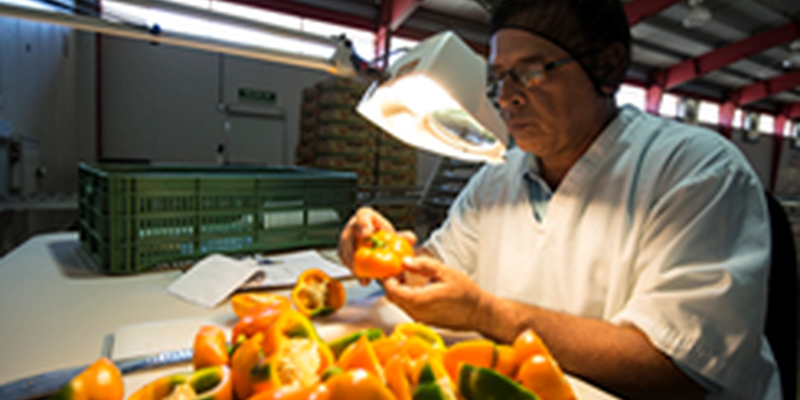Legislation is key to a successful paperless phytosanitary certification
Posted on Wed, 30 Mar 2022, 07:41

© Ezequiel Becerra
Rome, 25 March 2022. Amending primary legislation maybe necessary for some countries to successfully implement the International Plant Protection Convention (IPPC) electronic phytosanitary certification or ePhyto. The ePhyto solution is an innovative tool that transitions paper-based information to digital phytosanitary certificates. The right conditions also need to be set to facilitate their issuance and acceptance by national plant protection organizations (NPPOs). This will make the certification process more efficient.
These were the key recommendations from a recent study by the IPPC Secretariat which analyzed the phytosanitary certification laws in five pilot countries, including Kenya, Malawi, Uganda, Zambia and Zimbabwe. Highlights of the study were presented at a webinar to member countries of the Common Market for Eastern and Southern Africa (COMESA). Around 30 participants from 21 COMESA countries attended the webinar.
Due to the limits of existing legislative and administrative frameworks, NPPOs can only consider paper certificates as official documents. If ePhyto certificates were to be officially recognized, then paperless procedures will further facilitate the safe trade of plants, plant products and related articles. Hence, legislation should be amended to support the adoption of ePhyto.
“This electronic exchange makes trade safer because it reduces the possibility of fraud and thus, help prevent the introduction and spread of pests,” said Osama El-Lissy, Secretary of the IPPC.
“It is faster as it helps improve and facilitate border procedures. The certification process is more cost-effective as it helps reduce costs associated with certificate delays. ePhyto is inclusive and easy to implement,” he added.
“Considering all these benefits to trade that come with ePhyto, COMESA member states are urged to support its implementation to facilitate efficient export of agricultural products in COMESA and beyond,” said Providence Mavubi, Director of Industry and Agriculture Programmes of COMESA.
To get countries started, the IPPC Secretariat study recommended an ePhyto “model regulation,” a roadmap that will help countries draft new legislation or amend existing ones to introduce ePhyto. The model regulation, also presented during the webinar, is intended to be in accordance with a country’s national phytosanitary needs, specificities and processes. It demonstrates how a national regulatory framework can support a hybrid environment until electronic phytosanitary certificates are fully operational. . “This is particularly important during transition, or when electronic systems are under maintenance or encounter system failure," said Anne-Marie Lalonde, Legal Specialist of the IPPC Secretariat.
An example of successful ePhyto implementation is in Uganda. Its adoption resulted in real-time traceability, greater ease during documentation, quicker delivery to relevant stakeholders, and a more agile export certification system. Keeping a hybrid environment during transition and providing stakeholders with comprehensive training on ePhyto eased the transition.
Working with COMESA to facilitate safe trade and capacity building
The IPPC Secretariat and the COMESA Secretariat have been working to promote ePhyto among COMESA member countries, in line with the IPPC Strategic Framework 2020-2030’s focus on facilitating safe trade. The project “FAO support to COMESA trade facilitation programme” has been helping build the capacity of COMESA member countries by developing e-Learning courses on pest risk analysis, export certification, surveillance and inspection. Guides are also being developed on contingency planning and early warning and response system on Tropical Race 4 (Fusarium oxysporum f. sp. Cubense).
“The collaboration between COMESA countries and the IPPC Secretariat is a fantastic achievement. It is my hope that we can work together to spread this positive message of collaboration across the entire IPPC community and beyond,” Mr. El-Lissy concluded.
Related information:

